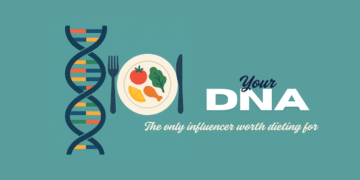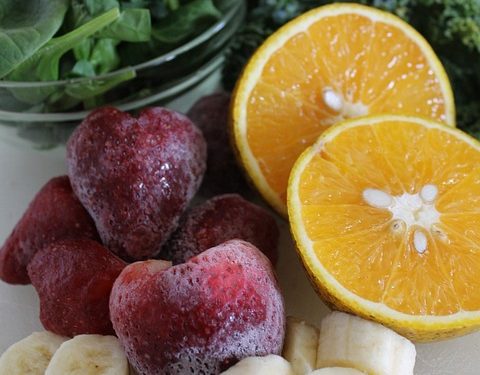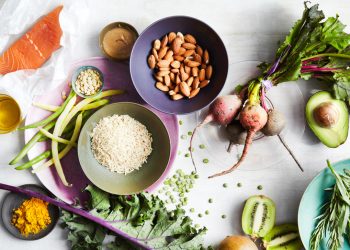[ad_1]
Unlocking Optimal Health: The Complete Guide to Holistic Nutritionist Secrets
In the quest for optimal health and wellness, many people are turning to holistic nutritionists for guidance. These experts understand that true health is not just about what you eat, but also how you live your life. By taking a holistic approach to nutrition, they are able to address the root causes of health issues and help their clients achieve lasting results.
In this comprehensive guide, we will delve into the world of holistic nutrition and uncover the secrets to unlocking optimal health. From understanding the principles of holistic nutrition to implementing practical tips for a healthier lifestyle, this guide will provide you with everything you need to know to start your journey towards better health.
Understanding Holistic Nutrition
Holistic nutrition is a form of healing that focuses on the whole person – mind, body, and spirit. It recognizes that our bodies are interconnected systems that require a balance of nutrients, energy, and emotional well-being to function optimally. By addressing all aspects of health, holistic nutritionists are able to create personalized plans that support the body’s natural healing processes and promote overall wellness.
Key Principles of Holistic Nutrition
1. Bio-individuality: Each person is unique and has specific nutritional needs based on factors such as genetics, lifestyle, and environment. Holistic nutritionists take these individual differences into account when creating personalized nutrition plans.
2. Whole foods: Holistic nutrition emphasizes the importance of eating whole, unprocessed foods that are rich in nutrients and free from artificial additives. By fueling the body with high-quality foods, you can support optimal health and prevent disease.
3. Mind-body connection: Holistic nutrition recognizes the powerful influence of the mind on the body. Stress, emotions, and mental health all play a role in overall wellness, and holistic nutritionists work to address these factors in their treatment plans.
4. Prevention: Rather than just treating symptoms, holistic nutrition focuses on preventing disease by promoting a healthy lifestyle and supporting the body’s natural healing mechanisms. By addressing underlying imbalances and deficiencies, you can reduce your risk of chronic illness and improve your quality of life.
Practical Tips for a Healthier Lifestyle
1. Eat a colorful variety of fruits and vegetables: Different colors indicate different nutrients, so aim to include a rainbow of produce in your diet. This will ensure that you are getting a wide range of vitamins, minerals, and antioxidants to support your health.
2. Prioritize whole grains and legumes: Whole grains like quinoa, brown rice, and oats, as well as legumes like lentils, chickpeas, and black beans, are excellent sources of fiber, protein, and essential nutrients. Include these foods in your meals to promote satiety and support digestive health.
3. Choose healthy fats: Opt for sources of healthy fats such as avocados, nuts, seeds, and olive oil. These fats are essential for brain health, hormone production, and overall well-being. Avoid trans fats and limit saturated fats from processed foods.
4. Stay hydrated: Water is essential for proper digestion, nutrient absorption, and detoxification. Aim to drink at least eight glasses of water a day, and consider adding herbal teas or infused water for variety.
5. Practice mindful eating: Take the time to savor your meals, chew slowly, and pay attention to your body’s hunger and fullness cues. Mindful eating can help you enjoy your food more, prevent overeating, and improve digestion.
Common Questions About Holistic Nutrition
1. Can holistic nutrition help with weight loss?
Yes, holistic nutrition can be an effective approach to weight loss by addressing underlying imbalances, promoting healthy eating habits, and supporting overall wellness. By creating a personalized nutrition plan that includes whole foods, balanced macronutrients, and lifestyle recommendations, holistic nutritionists can help you achieve and maintain a healthy weight.
2. Is a holistic nutritionist the same as a dietitian?
While both holistic nutritionists and dietitians focus on nutrition and health, there are some key differences between the two. Dietitians are trained professionals who are regulated by a governing body and often work in clinical settings. Holistic nutritionists take a more holistic approach to health, considering not just what you eat, but also how you live your life. They may incorporate elements of traditional healing practices, such as herbal medicine and energy work, into their treatment plans.
3. Are supplements necessary for optimal health?
While it is always best to get nutrients from whole foods, supplements can be helpful in certain situations. Holistic nutritionists may recommend supplements to address specific deficiencies, support detoxification, or promote overall well-being. However, supplements should not be used as a substitute for a healthy diet and lifestyle.
4. How can I find a qualified holistic nutritionist?
When looking for a holistic nutritionist, it is important to do your research and ask questions to ensure that they are qualified and experienced. Look for professionals who have completed a recognized certification program, have positive reviews from clients, and are knowledgeable about the latest research in nutrition and wellness. You can also ask for recommendations from friends, family, or healthcare providers.
In conclusion, holistic nutrition offers a comprehensive approach to health and wellness that considers the whole person – body, mind, and spirit. By focusing on whole foods, individualized plans, and preventive care, holistic nutritionists can help you unlock optimal health and live your best life. Whether you are looking to lose weight, improve your digestion, or boost your energy levels, holistic nutrition has something to offer everyone. Start your journey towards better health today by incorporating the principles and tips outlined in this guide into your daily routine. Your body will thank you for it.
[ad_2]























